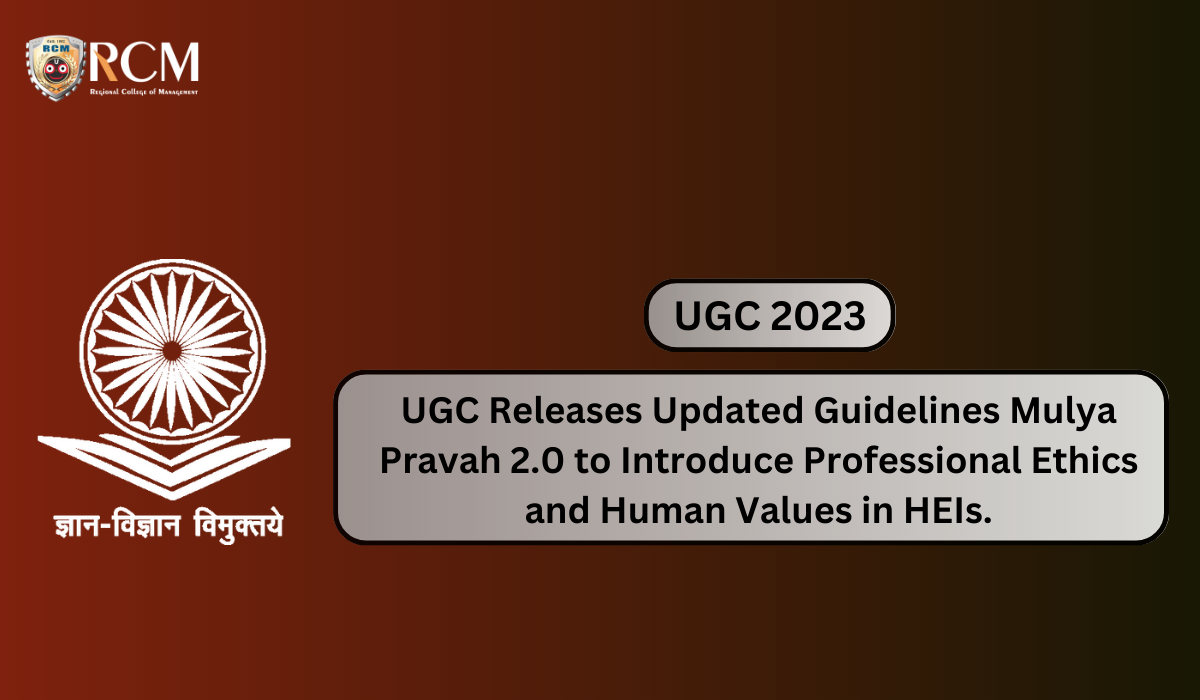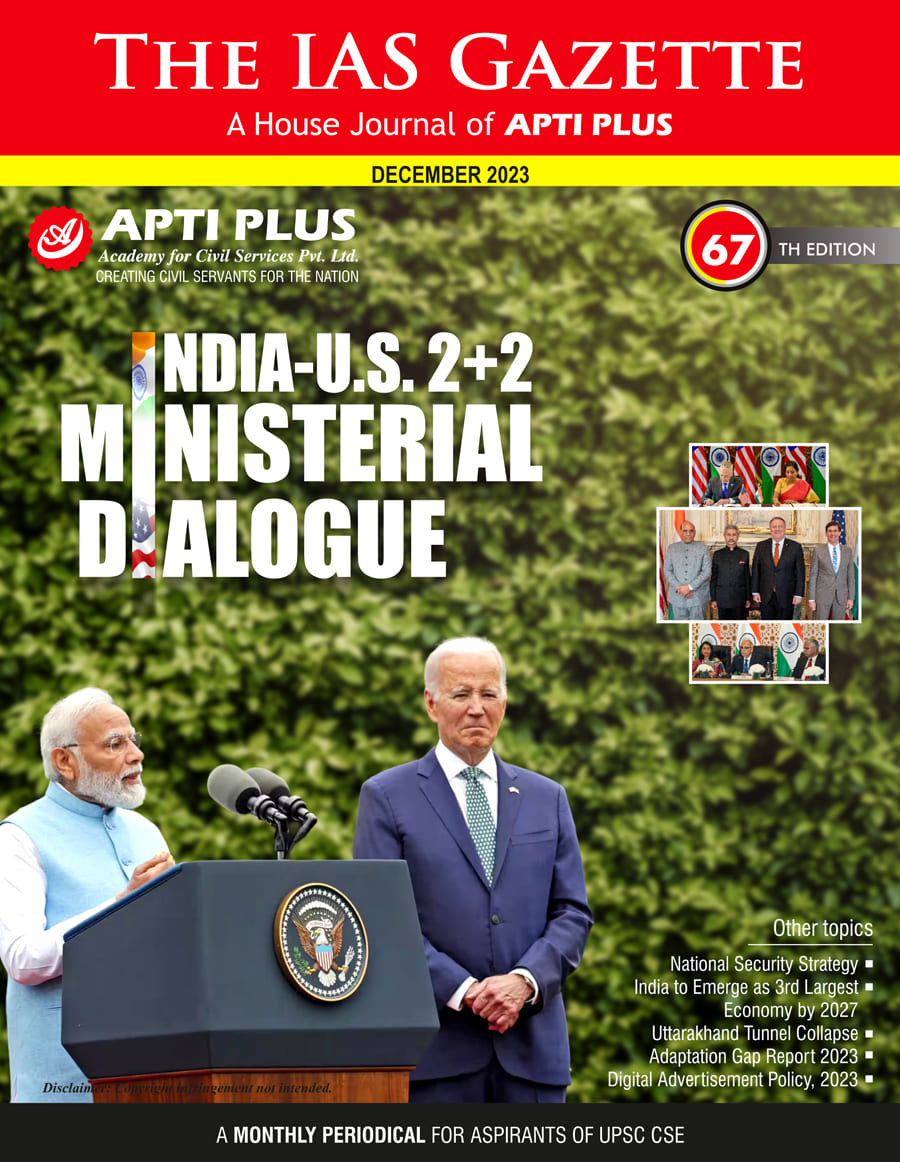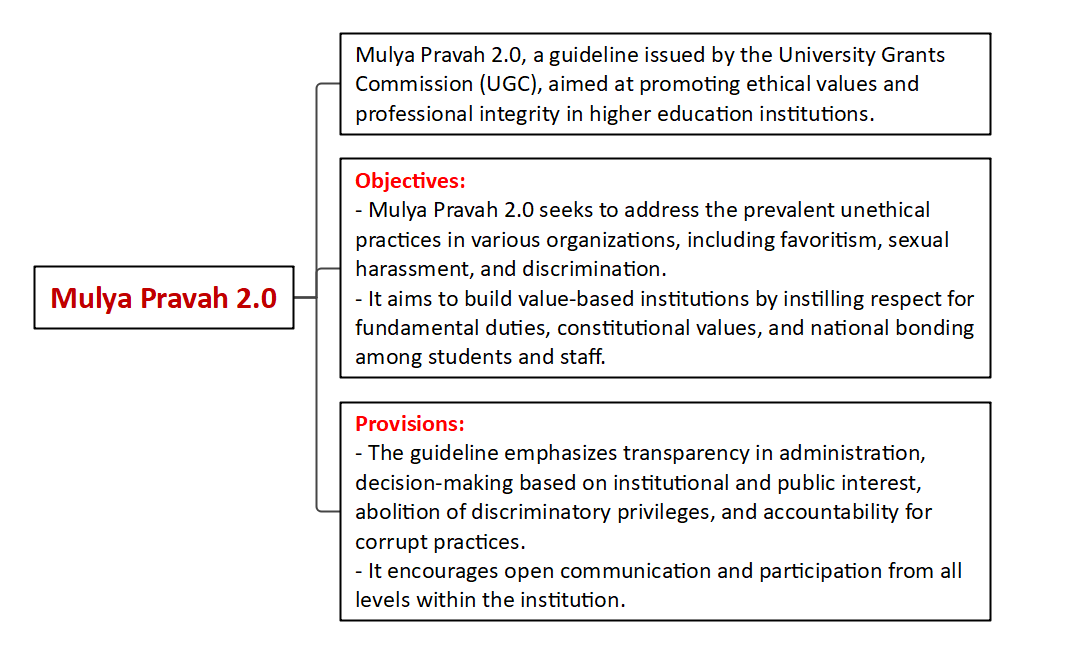Description

Copyright infringement not intended
Picture Courtesy: rcm.ac.in
Context: The University Grants Commission (UGC) issued the new guideline, Mulya Pravah 2.0, in response to surveys revealing prevalent unethical practices like favouritism, sexual harassment, and gender discrimination in various organizations.
Mulya Pravah 2.0
- The University Grants Commission (UGC) has recently taken a step towards promoting ethical and value-based education through the implementation of Mulya Pravah 2.0.
- The guideline seeks to address the prevalence of unethical practices in various organizations, including favouritism, sexual harassment, and gender discrimination. It aims to build a culture of integrity, accountability, and transparency within higher education institutions.
|
●Mulya Pravah 2.0 is a modified version of Mulya Pravah, introduced by the University Grants Commission (UGC) in 2019. The primary aim is to instil human values and professional ethics in higher education institutions in India.
|
Key Objectives of Mulya Pravah 2.0
- Inculcate human values and professional ethics among students, faculty, and staff.
- Foster a culture of honesty, integrity, and trust.
- Encourage critical thinking and open communication.
- Promote transparency in decision-making and accountability for actions.
- Recognize and reward ethical behaviour.

Challenges and Constraints
- Lack of awareness and sensitization: Many institutions may not be fully aware of the guideline or its significance, requiring active dissemination and educational efforts.
- Resistance and indifference: Some institutions might resist the perceived imposition or find it incompatible with their existing practices, necessitating a focus on communication and understanding.
- Ambiguity and subjectivity: The lack of clear definitions of key concepts like values and ethics can lead to misinterpretations and inconsistent implementation. Establishing frameworks and evaluation criteria is crucial.
- Compliance and enforcement: Without a dedicated mechanism for ensuring compliance and enforcing accountability, the guideline might lose its power. Implementing rewards and sanctions based on adherence can be an effective solution.
Way Forward
- Proactive dissemination and awareness campaigns.
- Providing resources and support to institutions for implementing value education programs and ethical practices.
- Establishing a robust monitoring and evaluation system to track progress and identify areas for improvement.
- Developing clear guidelines and frameworks for interpreting and applying the principles of the guideline.
- Implementing a system of incentives and sanctions to encourage compliance and address non-adherence.

Conclusion
- Mulya Pravah 2.0 represents a significant step towards fostering a more ethical and value-driven environment in Indian higher education. By addressing the challenges and actively collaborating, all stakeholders can work towards making this ambitious push a reality, ultimately leading to a transformative impact on the quality and character of education in the country.
|
PRACTICE QUESTION
Q. How can ethical education be effectively integrated into the curriculum in India to foster moral values, social responsibility, and ethical decision-making among students, ensuring the development of responsible and conscientious citizens?
|
















